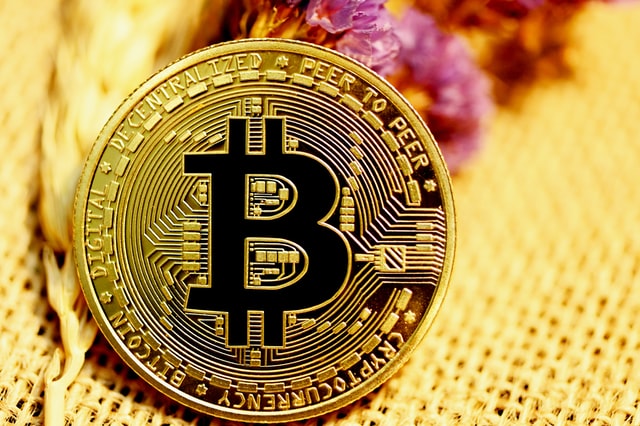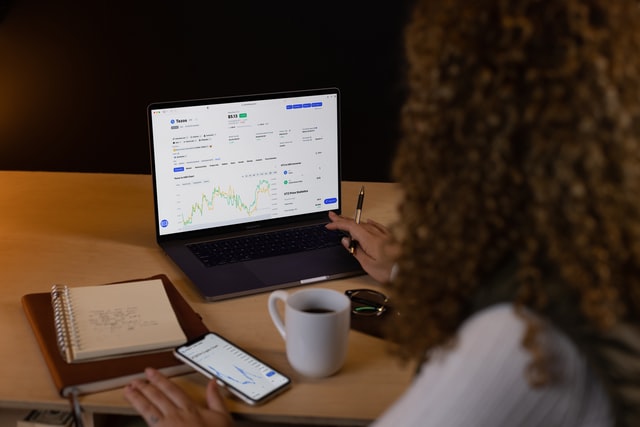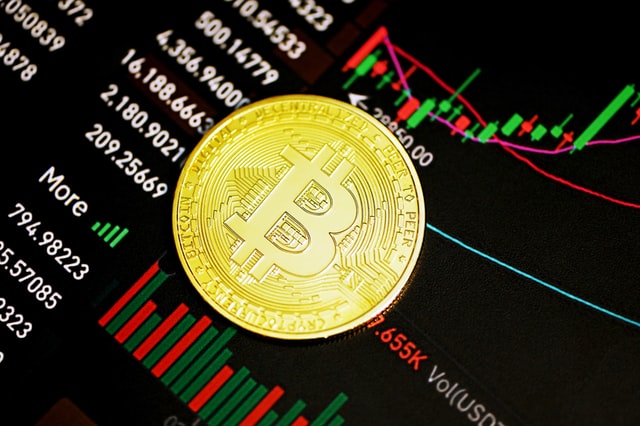 |
What is Bitcoin? |
Bitcoin was created by Satoshi Nakamoto, a pseudonymous person or team who summarized the technology.
It's an attractively simple concept: bitcoin is digital money that enables secure peer-to-peer transactions on the internet.
Unlike services like Venmo and PayPal, which rely on the traditional financial system of money and existing debit/credit accounts to allow transfers, Bitcoin is decentralized: two people, no matter where they are in the world, can use each other Send bitcoin without the need for a bank, government agency or other institution.
Every transaction involving bitcoin is registered in the blockchain is similar to a bank's ledger, or the register of customer funds going into and out of a bank. Simply put, it is the record of every transaction ever made with Bitcoin.
Unlike a bank's ledger, the bitcoin blockchain is spread across the network. No company, country, or third party controls this network and anyone can become part of it.
There will only ever be 21 million Bitcoin. This is digital money that cannot in any way be affected by inflation or manipulation.
You don't necessarily have to buy an entire bitcoin: you can buy just a fraction of a coin if that's all you want or need.
Bitcoin Basics
Thousands of new cryptocurrencies have been launched since Bitcoin's inception, but Bitcoin (abbreviated to BTC) is still the most successful in terms of market capitalization and trading volume.
Depending on your goals, Bitcoin can be used as a
- investment vehicle
- Store of value, comparable to gold
- Ability to transfer funds worldwide
- just a way to explore a new technology
Bitcoin is a currency native to the Internet. Unlike government-issued currencies like the dollar or euro, bitcoin allows online transfers without an intermediary like a bank or payment system. The removal of these coordinators creates a whole new range of opportunities, including the potential for moving money around the world on the internet faster and cheaper.
Bitcoin is legal to use, hold, and trade and can be spent on anything from travel to charitable donations. It is accepted as a form of payment by companies such as Microsoft and Expedia.
Is Bitcoin Money? It is used as a medium of exchange, a store of value, and a unit of account—all of which are properties of money. Meanwhile, it only exists digitally and there is no physical version of it.
Who Created Bitcoin?
Understanding how Bitcoin works help to start at the beginning. The question of who created Bitcoin is intriguing because even a decade after the technology was invented - and despite much scrutiny by journalists and members of the crypto community - its creator remains anonymous.
The principles behind Bitcoin were first published in a white paper published online in late 2008 by a person or group by the name of Satoshi Nakamoto.
This white paper is not the first to consider the idea of digital money harnessing the fields of cryptography and computer science. Indeed, the publication references previous concepts, but it was a uniquely elegant solution to the problem of building trust between the various online entities, where people (like Bitcoin's own creator) often hide behind pseudonyms or physically identify themselves are on the other side of the planet.
Nakamoto developed a pair of intertwined concepts: the Bitcoin private key and the blockchain ledger. If you own bitcoins, you control them with a private key - a sequence of randomly selected numbers and letters that unlocks a virtual vault when you buy them. Each private key is tracked in the virtual ledger known as the blockchain.
When Bitcoin first appeared, it was a major advance in computing because it solved a fundamental problem of commerce on the internet: how do you transfer funds between two people without a trusted intermediary (like a bank)? By solving this problem, the invention of Bitcoin had far-reaching implications: as a currency for the Internet, it enabled cross-border and global financial transactions without the involvement of banks, credit card companies, lenders, or even governments. When two people - wherever they live - can send each other payments without encountering these coordinators, it creates the potential for an open financial system that is more efficient, freer, and more innovative. In short: This is Bitcoin.
How bitcoin works
Unlike credit card networks like Visa and payment systems like Paypal, Bitcoin is not owned by any individual or company. Bitcoin is the world's first freely accessible payment network that anyone with an internet connection can participate in. Bitcoin was designed for use on the internet and does not rely on banks or private companies to process transactions.
One of the most important elements of Bitcoin is its blockchain, which keeps track of who owns what, much like a bank tracks assets. What sets the Bitcoin blockchain apart from a bank's ledger is its decentralization. This means that anyone can view the blockchain and no single entity has control over it.
Here are a few details on how it all works:
Specialized computers called "mining rigs" run the equations needed to verify and record a new transaction. In the early days, a typical desktop PC was powerful enough to participate in, so pretty much anyone interested could try their hand at mining. Today, the computers needed are massive, specialized, and often owned by corporations or a large number of individuals pooling their resources. (In October 2019, it took 12 trillion times more computing power to mine one bitcoin than it did when Nakamoto mined the first blocks in January 2009.)
The combined processing power of the miners is used to ensure the accuracy of the ever-expanding ledger. Bitcoin is inextricably linked to the blockchain. Every new bitcoin is recorded on this, as well as every subsequent transaction with all existing coins.
How does the network motivate miners to engage in the ongoing, essential work of maintaining the blockchain—verifying transactions? You can think of the Bitcoin network as an ongoing lottery, with all miners around the world wanting to be the first to solve a math problem. A winner is found approximately every 10 minutes, and the winner updates the Bitcoin ledger with new valid transactions. The price changes over time, but since the beginning of 2020, each winner of this raffle received 12.5 bitcoins.
In the beginning, a bitcoin was worthless. At the end of 2019, it was trading at around $7,500. As bitcoin's value has increased, its easy divisibility (the ability to buy a small fraction of a bitcoin) has become a key attribute. A bitcoin is currently divisible into eight decimal places (100 millionths of a bitcoin).
Nakamoto set up the network so that the number of bitcoins never exceeds 21 million, ensuring their scarcity. There is currently around three million Bitcoin available for mining - a process that will happen more and more slowly.
Cryptocurrencies and traditional currencies have some features in common - like how you can use them to buy things or transfer them electronically. However, they also differ in interesting ways. Here are some highlights.
How to get Bitcoin
The easiest way to buy bitcoins is through an online exchange like Coinbase. With Coinbase you can easily buy, sell, send, receive and store bitcoins without having to hold them yourself using so-called public and private keys.
However, if you choose to buy and store bitcoins outside of an online exchange, here is how it works.
Every person who joins the Bitcoin network is given a public key, a long string of letters and numbers that you can think of like an email address.
.When you buy or send/receive bitcoins, you receive a public key, which you can think of like a key that unlocks a virtual vault and gives you access to your funds.
Anyone can send you bitcoins using your public key, but only the private key holder can access the bitcoins in the "virtual vault" after they are sent.
There are many ways to store bitcoins both online and offline.
If you want to transfer funds from your wallet to a bank account after selling your bitcoins, the Coinbase app makes it as easy as transferring funds from one bank to another. Similar to traditional bank transfers or ATM withdrawals, exchanges like Coinbase set a daily limit and it can take anywhere from a few days to a week for the transaction to complete.
How Bitcoin is used
In 2013, a Bitcoin enthusiast named Laszlo Hanyecz made a post on a forum offering 10,000 BTC — which was worth around $25 at the time — to someone who would deliver two pizzas to his home in Jacksonville, Florida. As legend has it, these two pizzas, bought by another early bitcoin user at a local Papa John's, went down in history as the first successful purchase of non-virtual goods using bitcoins. Thankfully, it's a lot easier to use Bitcoins these days!
It's simple: transactions with BTC are not very different from transactions with a credit or debit card. However, instead of being asked to enter the card information, you simply enter the payment amount and the service provider's public key (similar to an email address) through a wallet app. (For in-person transactions using smartphones or tablets, a QR code is often displayed to simplify the process. When you scan the code, your wallet app automatically enters the relevant information.)
It's Private: One of the advantages of paying with Bitcoins is that it limits the amount of personal information you have to provide. You only need to provide your name and address if you are purchasing physical goods that require shipping.
It's flexible: what you should do with your bitcoins depends entirely on your interests. Here are a few ideas:
You can sell it for money on an exchange or at a Bitcoin ATM.
You can spend it online or in brick-and-mortar stores like any other currency using a bitcoin debit card.
You can keep some or all of them as part of your investment and savings strategy.
You can donate to a charitable cause that is important to you.
And if you have a big budget and dream of an unfulfilled astronaut career? Richard Branson's Virgin Galactic is happy to accept BTC in exchange for the opportunity to embark on one of its upcoming space tourism missions.
What Makes Bitcoin a New Kind of Money?
Bitcoin is global. You can send bitcoins all over the planet as easily as you can pay with cash in the physical world. Bitcoin has no weekend lockdown, no fee to access your own money, and no arbitrary restrictions.
Bitcoin is irreversible. Bitcoin behaves like cash in the sense that transactions cannot be reversed by the sender. In comparison, credit cards, traditional online payment systems, and bank transactions can be canceled after payment is made - sometimes months after the initial transaction - due to the central intermediaries who complete the transactions. This leads to a higher risk of fraud for merchants, which in turn can lead to higher fees for using credit cards.
Bitcoin is private. When paying with bitcoins, there are no bank statements or the need to provide the merchant with unnecessary personal information. Bitcoin transactions contain no identifying information other than the bitcoin addresses and amounts involved.
Bitcoin is safe. Due to the cryptographic nature of the Bitcoin network, Bitcoin payments are inherently more secure than standard debit/credit card transactions. With a bitcoin payment, there is no need to send sensitive information over the internet. There is a very small risk of your financial information being compromised or your identity being stolen.
Bitcoin is open.
This means there is no room for tampering with transactions (barring a highly unlikely 51 percent attack scenario) or altering the supply of bitcoin. The software that forms the core of Bitcoin is free and open-source, so anyone can review the code.
Bitcoin is protected. In more than ten years, the Bitcoin network has never been successfully hacked. And because the system is free and open-source, countless computer scientists and cryptographers have been able to examine all aspects of the network and its security.
Where does bitcoin come from?
In a sense, Bitcoin is “mined” by a huge, decentralized (also known as “peer-to-peer”) computer network that constantly checks and ensures the accuracy of the blockchain. Every single bitcoin transaction is reflected in this ledger, with new information periodically being consolidated into a “block” that is added to all previous blocks.







No comments:
Post a Comment